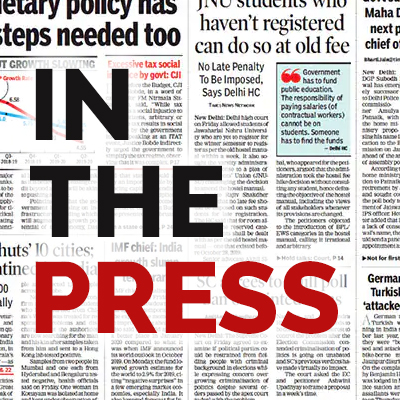Teachers condemn plans to make them criminally responsible for failing to report forced marriages

I was a victim of forced marriage
July 16, 2018
The couples on the run for love in India
April 13, 2019Teachers condemn plans to make them criminally responsible for failing to report forced marriages
'The idea of criminal sanctions does raise the stakes for professionals but without the training, knowledge and understanding,' says deputy general secretary of UK's biggest teachers' union
Maya Oppenheim
Wednesday 20 February 2019
Britain’s biggest teachers’ union has urged the government not to bring in measures that would make them criminally responsible for not reporting a student’s forced marriage.
The Home Office also looked into the possibility of introducing such measures for health and social workers in a consultation that ended last month.
But the National Education Union (NEU) has warned the proposals to make teaching staff criminally responsible is the “wrong approach”.
Amanda Brown, the union’s deputy general secretary, said such a law increases “the stakes” without providing the required training for its members.
She said: “The idea of criminal sanctions does raise the stakes for professionals but without [giving them] the training, knowledge and understanding”.
The NEU, which has over 450,000 members, is against any form of mandatory reporting.
“We need a longer-term approach, ensuring ... that young people understand they can raise their concerns with their teachers,” Ms Brown added.
Teachers have raised alarm bells that training around the issue is poor – with research from the Association of Teachers and Lecturers (ATL) finding less than half of teachers said they had been given training to recognise the signs of forced marriage.
Forced marriage is defined as occurring when one or both parties do not consent to the marriage, or when consent is extracted under duress. This can include physical, psychological, financial, and sexual pressure.
The Home Office did not say when its consultation findings would be published.
Laws making it illegal to force someone into marriage in England and Wales were implemented in 2014. Anyone found guilty of doing so can be imprisoned for up to seven years.
But Home Office figures show there have been only four convictions in England and Wales since it was made a criminal offence in 2014.
The practice of forced marriage sees girls taken abroad to be married off to strangers – with young girls often told they are going back to their country of origin to visit family and unaware of what is happening until they arrive. This can result in their education being cut off and them being trapped in a cycle of poverty.
A spokesperson for the Home Office said: “The consultation was open to everyone and encouraged victims and survivors of forced marriage, those with expertise in the area of forced marriage, and relevant professionals, including those working in social care, education, the police and healthcare to come forward and share their expertise on this crime.
“We will give careful consideration to all the responses received and will publish the findings of the consultation in due course.
“We know that forced marriage is often a hidden crime and so it is essential that everyone knows the law and how to spot the signs, and that victims have the confidence to come forward.”

